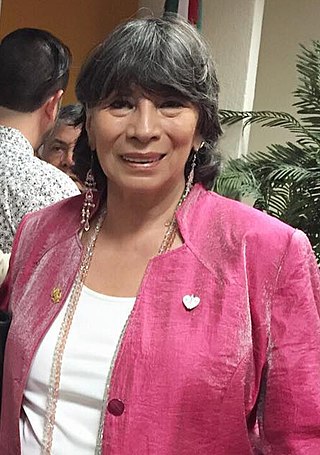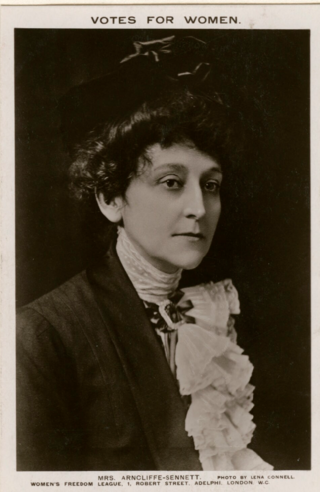
Isabel Angelica Allende Llona is a Chilean-American writer. Allende, whose works sometimes contain aspects of the magical realism genre, is known for novels such as The House of the Spirits and City of the Beasts, which have been commercially successful. Allende has been called "the world's most widely read Spanish-language author." In 2004, Allende was inducted into the American Academy of Arts and Letters, and in 2010, she received Chile's National Literature Prize. President Barack Obama awarded her the 2014 Presidential Medal of Freedom.

Silvia Pinal Hidalgo was a Mexican actress. She began her career in theatre before venturing into cinema in 1949. She became one of the greatest female stars of the Golden Age of Mexican cinema and, with her performance in Shark! (1969), part of the Golden Age of Hollywood. Her work in film and popularity in her native country led Pinal to work in Europe, particularly in Spain and Italy. Pinal achieved international recognition by starring in a trilogy of films directed by Luis Buñuel: Viridiana (1961), The Exterminating Angel (1962) and Simon of the Desert (1965).

María Díaz de Padilla was the mistress of King Peter of Castile, whom he posthumously recognised as his wife.

Yolanda Vargas Dulché de la Parra was a Mexican writer principally known for the creation of the comic book character of Memín Pinguín and various telenovelas for Mexican television. She began her writing career as a way to supplement income for several newspapers, creating Memín Penguín in 1943. By 1960, she has successfully published a number of comic books, encouraging her husband, Guillermo de la Parra, to write as well. The two went on to create various successful telenovelas including Rubí, which has been redone for both television and film. In total Varga Dulché published over sixty titles in both Mexico and abroad. Rubí was published between 1963 and 1964 in the romance comic book Lágrimas, Risas y Amor.
Adela Amalia Noriega Méndez is a Mexican actress. She came to prominence after starring in teen-oriented coming-of-age telenovelas in the 1980s, Quinceañera (1987–1988) and Dulce desafío (1988–1989).

Elena Anaya Gutiérrez is a Spanish actress.

Frances "Fanny" Erskine Inglis, later the Marquesa of Calderón de la Barca and best known as Fanny Calderón de la Barca,, was a 19th-century travel writer best known for her 1843 memoir, Life in Mexico, which is regarded by historians as one of the most influential Latin American travel narratives of the 19th century.

Josefa de Tudó y Catalán, 1st Countess of Castillo Fiel, also known as Pepita Tudó was the second wife of Spanish Prime Minister Manuel de Godoy.

Isabella I, also called Isabella the Catholic, was Queen of Castile and León from 1474 until her death in 1504. She was also Queen of Aragon from 1479 until her death as the wife of King Ferdinand II. Reigning together over a dynastically unified Spain, Isabella and Ferdinand are known as the Catholic Monarchs.

Mónica Miguel was a Mexican actress, director, and singer.

María de Maeztu Whitney was a Spanish educator, feminist, founder of the Residencia de Señoritas and the Lyceum Club in Madrid. She was sister of the writer, journalist and occasional diplomat, Ramiro de Maeztu and the painter Gustavo de Maeztu.
Lucinda Urrusti was a Spanish-born Mexican artist, whose work has gained fame not only from the writing of art critics, but also by poets and writers from other fields, such as Carlos Fuentes. She was born in Melilla to a Spanish family which came to Mexico in 1939 to escape the Spanish Civil War and remained in Mexico since. Urrustia was a part of Mexico’s Generación de la Ruptura, a group of artists that broke with the dominant Mexican muralism of the first half of the 20th century with most of her work classed as Impressionism and/or abstract. However, she was also a noted portrait artist, having depicted a number of Mexico’s elite in the arts and sciences.

Anna Murià i Romaní was a Spanish Catalan narrator, translator, literary critic, and journalist who wrote short stories, novels, children's literature, and essays. A feminist activist, Murià i Romaní served as secretary of the Institució de les Lletres Catalanes, was a founding member of the Grup Sindical d'Escriptors Catalans, and was an Honorary Member of the Associació d'Escriptors en Llengua Catalana.
María Silva was a Spanish film and television actress.

El vuelo de la victoria is a Mexican telenovela produced by Nathalie Lartilleux for Televisa. The telenovela follows the story of Victoria a young runner who finds in athletics a way to make sense of her life and will fight to get a place in the Olympics. It stars Paulina Goto, Mané de la Parra and Andrés Palacios.

Alice Maud Arncliffe Sennett also known with the stage name of Mary Kingsley was an English actress and suffragist and a suffragette, arrested four times for her activism.
Aurora Luque Ortiz is a Spanish poet, translator, teacher, and writer based in Andalusia.

Delia Beatriz De la Cruz Delgado, known professionally as Macaria, is a Mexican actress.

Isabel Natividad Díaz Ayuso is a Spanish politician and journalist serving as the president of the Community of Madrid since 2019. She is the president of the People's Party of the Community of Madrid.

In Place of Splendor is an autobiographical account by the Spanish republican Constancia de la Mora in which she describes her life from her birth into an aristocratic Spanish family to her exile in the United States. It was published in 1939 in English as In Place of Splendor: The Autobiography of a Spanish Woman and in 1944 in Spanish in Mexico as Doble esplendor: Autobiografía de una mujer española.
















